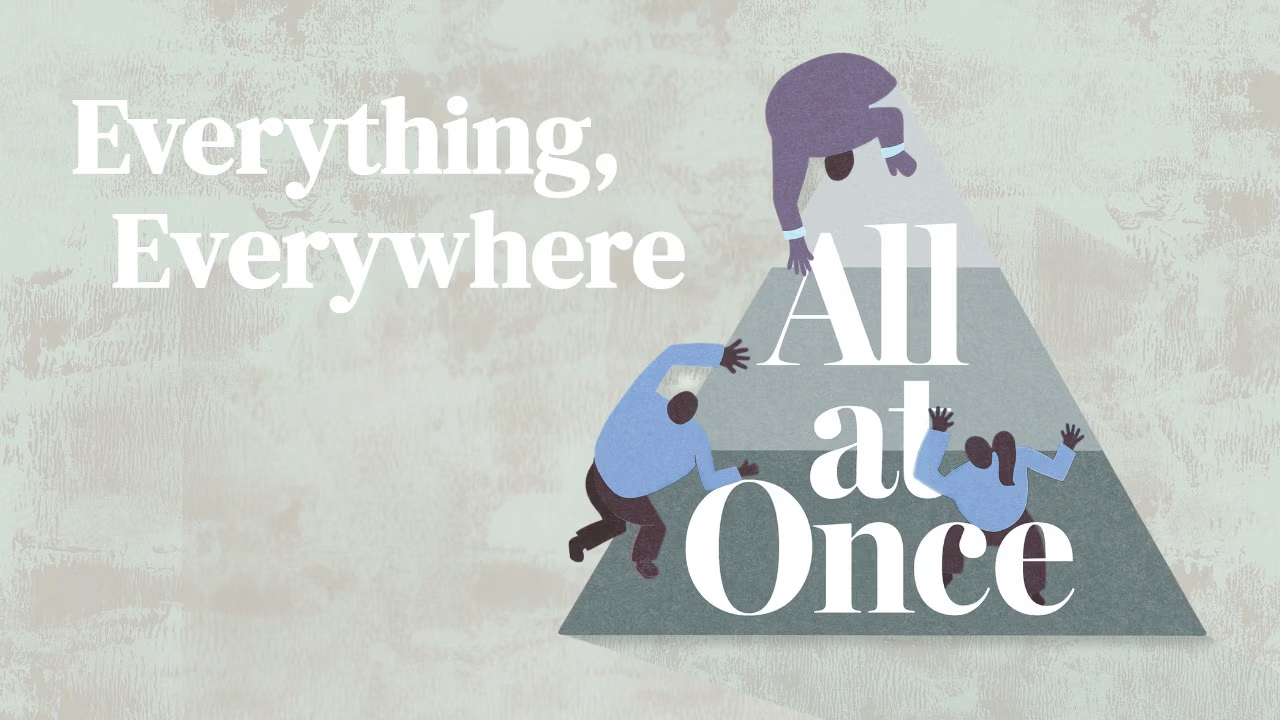This is the third essay on The State of Christian Music—what’s happening, how things are going, and what we can do about it.
The Musicality of Christian Music
In Part 1, I presented my case that Christian music is (mostly) dead, and that to experience its resurrection and rebirth, we must learn to let go of some outdated or inaccurate paradigms. Last week, we examined Christian music from the perspective of the listener and tried to refute the mistaken idea that Christian music should not change.
Today, I want to refute a different criticism that I often hear: that Christian music is not very musical. Aside from the lyrical or spiritual content of the music, many people find the creative aspect of Christian music lacking, especially compared to music in other genres or communities not built around Christian faith. And even many who do acknowledge pockets of excellence within Christian music contend that these bursts of musical achievement mostly happened in the past. They say that today’s Christian music is just not as musical as it used to be.
My answer is…no. It’s just not true.
Contrary to what some of us might believe, the music part of Christian music—not the message or lyrical content, but the melodies, harmonies, chords, and rhythms—was not any better during the 1990s, the 1950s, or even in the 1750s with Johan Sebastian Bach. There was boring, uninspired music then, and boring, uninspired music now. There was brilliant, inspired music then, and there’s brilliant, inspired music now. What’s different now is how technology has affected our experience.
Technology and the Hip-Hop Revolution
Just as technology reshaped how listeners consume music, it has revolutionized the way creators make it. Take hip-hop: what began in the 1970s New York as DJs looping drum “breaks” and MCs spitting rhymes has exploded into the heartbeat of mainstream production. In 2019’s “Old Town Road,” Lil Nas X fused trap drums with country guitar and even country legend Billy Ray Cyrus to remind us how far hip-hop’s influence reaches.
Hip-hop’s early innovators turned turntables into instruments, scratching vinyl to craft new rhythms, and then swapped record players for samplers and drum machines. Those same tools migrated into pop, R&B, rock, and beyond: today’s artists often build entire tracks on a laptop. Even live bands feed their recordings through software that auto-tunes pitch and tightens timing, so every snare hit and vocal run emerges polished.
In short, the barrier to “being a musician” has all but vanished. Advanced digital workstations and now AI-driven virtual instruments allow anyone to assemble convincing, radio-ready songs without mastering an acoustic instrument or formal theory. There are even apps that will generate complete songs (lyrics, vocals, and all) from a simple text prompt—think Metallica’s “Enter the Sandman” reimagined as yacht-rock R&B.
Many purists bristle at this, arguing that true artistry is lost when a machine does the heavy lifting. (I’ll come back to that debate.) It’s worth acknowledging that technology hasn’t diluted musicality; it’s democratized it. That shift explains why “musical complexity” no longer lives solely in virtuoso solos or packed stadiums but rather in every bedroom producer, every bedroom-to-YouTube prodigy, and every swipe through a streaming playlist.
All genres—even those born in folk traditions—operate on melody, harmony, and rhythm. Christian artists, past and present, are masters of these fundamentals.
The Paradox of Availability
In psychology and economics, the scarcity principle says that people tend to value things in direct proportion to their scarcity. If something is harder to find, it becomes more valuable. With music, we are experiencing the opposite. I call it the Paradox of Availability. As music has become so easy to produce, it has become less valuable.
It may not feel that way for listeners. As more and more musicians flood the market with new music, the variety of music that’s available on streaming platforms is a boon for consumers. But for musicians, it means that each song becomes more and more disposable and replaceable. Where albums used to take several years to produce, now they can be made in months, or even days. And that’s assuming an album—a collection of songs bound by a particular location, time, or theme—is even the goal. Many artists satisfy their audiences by releasing a predictable drip of singles in the same way that podcasts grow their listening audience by releasing episodes at regular intervals.
As the internet came to dominate musical distribution, however, that cycle metastasized. For many of the children in Generation Alpha or the young adults in Gen Z, their concept of greatness is conflated with going viral on social media. Since whole platforms like TikTok and Instagram were built on the popularity of looping music videos, artists have been incentivized to treat music as another form of content, releasing as much of it as possible, as often as possible, to increase the chances of their name, image, or song trending on the platform. The effect is as dramatic as it is ironic. The more songs are produced, the fewer songs we tend to retain. The greater the total number of songs that exist in the musical ecosphere, the harder it is for any one song to stick out and make an enduring connection to the listener.
Either way, a lot of great music is being made by musicians, young and old alike. But all this creativity feels more fleeting, more ephemeral, and less substantial. There’s so much of it that it all feels disposable. Even when songs do break through the noise and become popular, that popularity usually only exists within a certain segment of the population. Gone are the days when a powerful anthem from pop music could unite a whole generation. And because of meme culture, songs often go insanely viral in a matter of days or weeks and then burn out just as quickly.
That’s true across popular music, and Christian music is no exception.
A Better Question
Instead of asking whether Christian music is more or less musical now than in the past, we ought to be asking instead, “Where is the movement of the Spirit showing up in our musical creativity?” In other words, where are God’s purposes being brought to fruition in this age, and how can music play a part in it? I don’t just mean the spiritual content of the music (that’s a topic for a different essay), but the musical creativity itself. In what ways can the musicians of today—many of whom are raising up the musicians of tomorrow—reflect God’s work of shalom as they engage their creative pursuits?
It starts with recognizing that creativity is a gift worth stewarding, regardless of its efficacy at generating desired outcomes. A beautiful song is a gift from God, regardless of how or where it is used for church ministry purposes, because God’s Spirit is never confined to the boundaries of our church ministries. God is honored when we put more beauty, truth, and goodness into the world—even when that beauty, truth, and goodness are evaluated through subjective metrics.
This is part of how Covenant has become a multiethnic mosaic. I remember being at a church retreat in the early 2000s, when I was part of a small, multiracial church, and I was helping to lead worship. One of the elders, an educated white man in his late 40s, said something really profound. He was speaking to those of us who are more loud and expressive in our singing and movement during congregational worship, and he said something to the effect of, “I’m not outgoing in the same way as you all are, but please don’t stop on my account.” He went on to say that even though he doesn’t shout and clap and raise his hands in that way, he experienced a vicarious sense of God’s movement just by watching us be authentic in our worship response.
Each of us in God’s family get a wider, deeper sense of who God is when we experience God’s image reflected through diverse people. And music is an essential dimension of that diversity. Each of us brings different musical traditions as a part of our shared ethnic, cultural, and geographical heritage, and those aesthetic attributes are inherently honoring to God, even apart from what we do with them lyrically.
All Together Now
God is honored by our musical processes just as much as by our musical outcomes. The musicologist Christopher Small refers to music not as a noun, but as a verb; any form of musical participation he refers to as musicking. The idea is that music is a communal phenomenon and all of us play important roles, whether we’re performing, practicing, producing, or hearing and responding. In this theory, music is not simply a product, but a process. And Small would say that there is fulfillment to be found in every part of that process.
This is why I don’t fear the advent of AI in the industry. Certainly, regulatory frameworks must be established to protect human musicians; otherwise, their intellectual property can be vacuumed up by generative AI models that can replicate elements of their style without providing just compensation. Sadly, that has been happening for several years. But the AI models are only valuable if you view music as a commodity to be exploited. Mikey Shulman is the co-founder and CEO of the generative AI music platform Suno, and he told a venture capitalist podcaster in January 2025 that he thinks most people don’t enjoy the process of creating music. When that headline hit social media, my musician friends scoffed. (“Tell me you’re not a musician without telling me you’re not a musician,” one person said.)
Shulman obviously does not understand the deep joy that comes from creative work, not only from the output but from all the processes that made it possible—all the listening, rehearsing together, practicing alone, experimenting with compositions and arrangements, and the kaleidoscope of emotions that go into it all. These are important components of the human experience that AI cannot replicate. It’s all part of musicking.
So let all of us continue musicking. Even if a particular musician in your orbit creates in a style that is not your cup of tea, they might inspire someone else to create something that is. Christ is glorified when we express the unity of the Spirit by musicking together.














